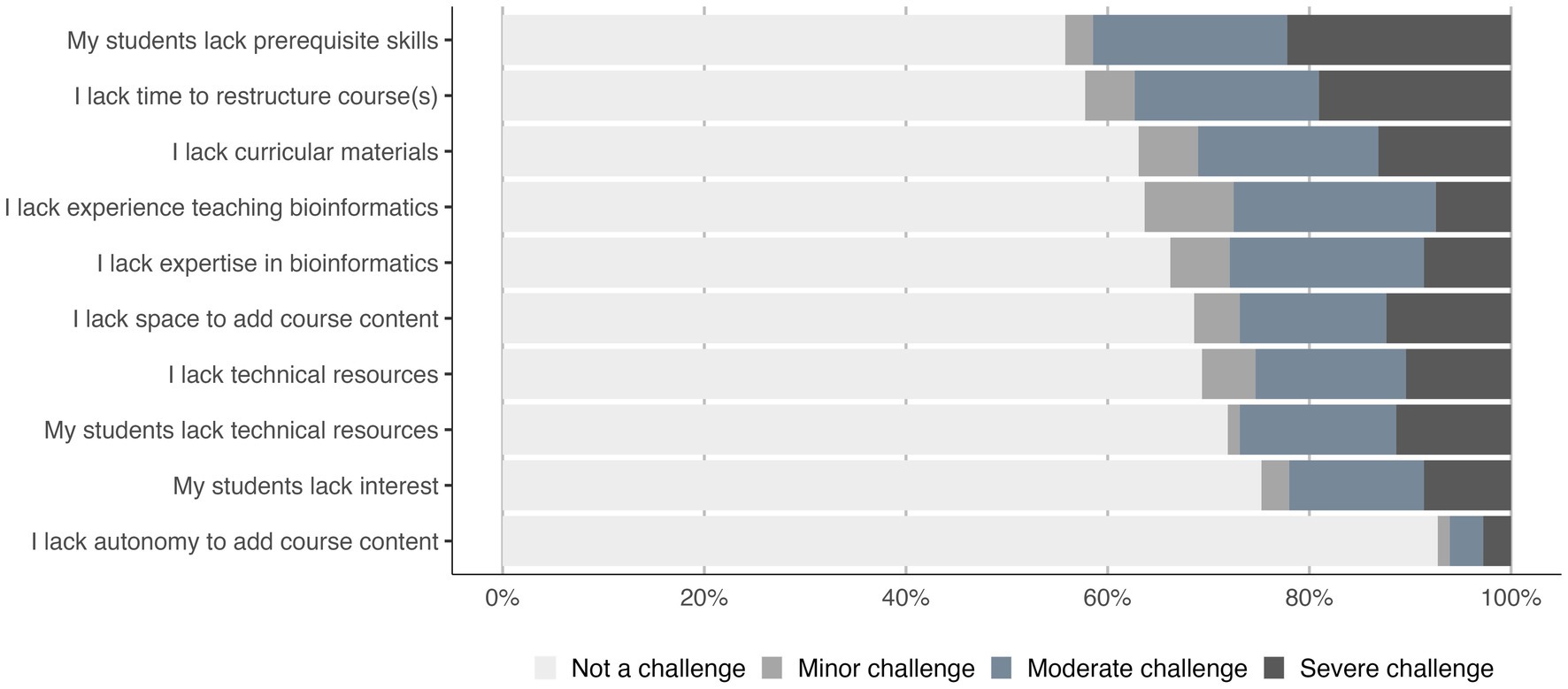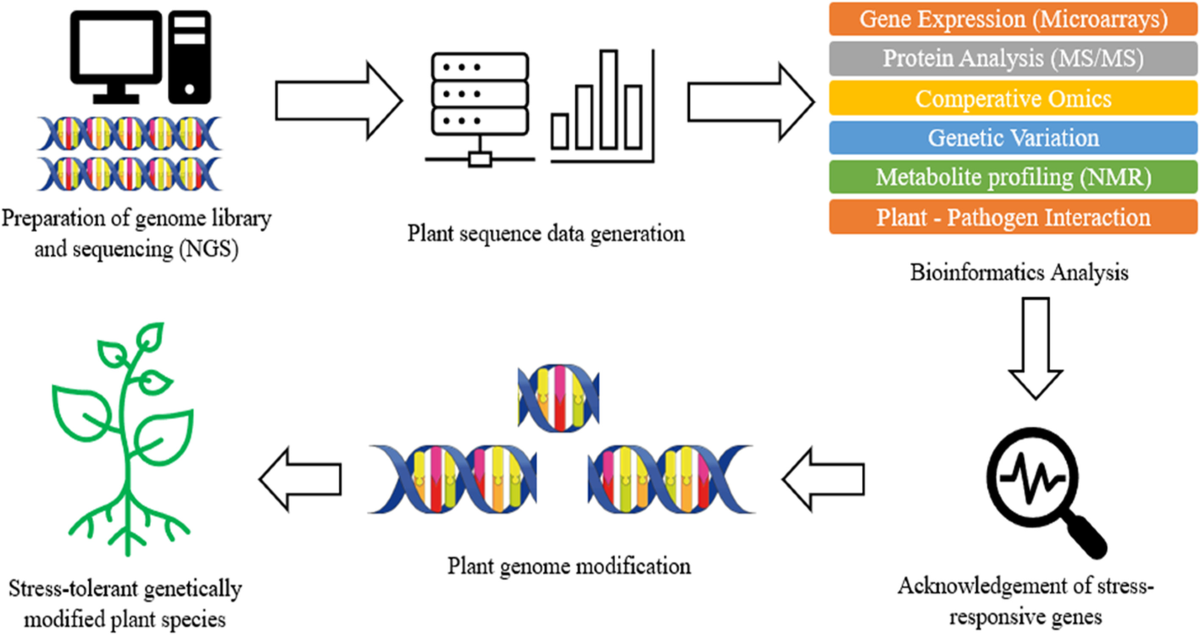Not known Details About Bioinformatics Tutor
Not known Details About Bioinformatics Tutor
Blog Article
Some Ideas on Bioinformatics Tutor You Need To Know
Table of ContentsThe Bioinformatics Tutor DiariesThe Ultimate Guide To Bioinformatics TutorNot known Details About Bioinformatics Tutor Things about Bioinformatics TutorBioinformatics Tutor - An Overview
Of the overall participants involved in the training, 80% were students from public higher education institutions, while the remaining 20% originated from exclusive establishments. To receive a certification of involvement, students were called for to go to a minimum of 90% of the total training hours. As an outcome of this need, a remarkable 95% of the individuals effectively obtained their certifications, having not only met the minimum attendance standards however likewise completed all designated activities throughout the training.
During the elevation of the COVID-19 pandemic, especially in between June and August 2020, the job team was charged with organizing specialized training in bioinformatics. This training was specifically targeted at pupils from the research study group Center for Research in Applied Computer at the Federal College of Pará (UFRA) The adjustment to remote learning platforms as a result of the pandemic created a chance to explore new training methodologies and digital devices that improved both reach and performance.
This program was made to give an obtainable yet thorough summary of Artificial Intelligence strategies, particularly as used in bioinformatics (Bioinformatics Tutor). This online style made it possible for involvement from trainees across Brazil, many of whom could not have had the chance to attend in-person sessions.
Getting My Bioinformatics Tutor To Work
Around 50% of the overall training hours were committed to useful activities where trainees constructed smart versions and applications in a range of clinical domains, including genes, molecular biology, and environmental information evaluation. These platforms enabled students to engage in real-time information adjustment, version training, and formula testing.
Sixty of them were associated with various greater education institutions in the state of Pará, while the staying twenty came from institutions found in 5 other Brazilian states. By presenting Artificial Intelligence in a relevant and functional context, the initiative offered to bridge the space between theory and real-world application, giving trainees with a strong foundation for future study or employment in the area.
The training initiative developed part of a wider scholastic outreach effort referred to as the Bioinformatics on the Road task. This project has, for many years, presented loads of pupils to the world of bioinformatics and computational biology. The occasions held under this umbrella campaign have taken area across several areas and years, as summarized in Table 1 (Listing of occasions, locations, years, and overall varieties of students and trainers)
Numerous of these teams, at first brought with More hints each other useful link by their engagement in training occasions, have actually because gone on to create independent clinical study in partnership with regional academic institutions. The training not just cultivated scientific thinking within the context of bioinformatics yet additionally stimulated joint relationships that extended beyond the training setting.
How Bioinformatics Tutor can Save You Time, Stress, and Money.
The project itself was conceptualized and arranged by megabytes and RR, who oversaw the planning and implementation of each step. Lectures were supplied by a multidisciplinary team containing MB, FA, EF, KP, JS, DM, SN, LP, LG, AIR CONDITIONER, rr, and ih. The exact same team, leaving out IH and RR, also worked as tutors for the useful training components. Funding for the task was offered via the grant 88887.200562/ 2018-00 from CAPES. The writers expand their thankfulness to everyone that added to the awareness of this task, whether directly or indirectly, considering that its creation.
The Federal University of Pará's Workplace of Research (PROPESP/UFPA) likewise gave financial support, especially for the manufacturing of the final manuscript. The authors proclaim no commercial or monetary disputes of passion that could have influenced the study. All interpretations and viewpoints shared in this write-up are solely those of the authors and do not always mirror those of their respective organizations, the author, editors, or customers included in the magazine process.

The Best Guide To Bioinformatics Tutor
From a pedagogical point of view, the teaching technique used in the training was intentionally interactive. Courses were conducted in a fashion that urged trainee participation and conversation, exceeding rote memorization to explore just how concepts are developed, used in every day life, and checked in academic setups. The training viewpoint focused on supporting both strong and battling trainees, providing individualized these details assistance, and building self-confidence with sustained mentorship and patience.

Each team, consisting of around 36 individuals, was sustained by 3 coaches-- the majority of whom were postdoctoral researchers with specialized knowledge. These mentors not only helped create the group tasks yet additionally facilitated their execution, making sure that each research inquiry was both pertinent and appropriately tough. The objective was to offer a naturally practical context that participants can check out via open-ended objectives and access to curated datasets.
For added insights into the method and outcomes of this project-based discovering method, viewers are directed to S1 Text, which consists of comprehensive summaries of the pedagogical framework, evaluation approaches, and project styles used in the training sessions.
Bioinformatics Tutor Fundamentals Explained
Of the total individuals involved in the training, 80% were pupils from public higher education and learning establishments, while the staying 20% came from private organizations. To qualify for a certificate of participation, trainees were needed to go to at least 90% of the overall training hours. Significantly, past the pupils who signed up in the training sessions, 7 seasoned teachers participated in delivering the programs, while 3 specialized research study teachers collaborated the general training procedure. Around 50% of the complete training hours were devoted to useful activities where students built intelligent versions and applications in a range of scientific domains, including genes, molecular biology, and ecological data analysis. The training not only cultivated clinical thinking within the context of bioinformatics but also triggered joint connections that prolonged beyond the training setting.
Report this page